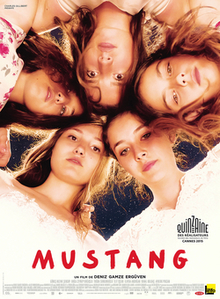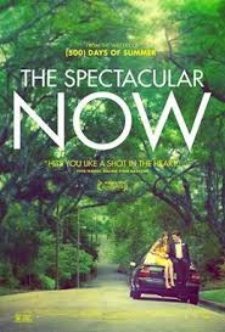“Eighth Grade” enjoyed an exceedingly successful screening on the 2018 Phoenix Film Festival’s closing night, and the movie opened three months later - on July 20 - at Harkins Camelview at Fashion Square Theatres. To help celebrate writer/director Bo Burnham’s entertaining and insightful comedy - starring Elsie Fisher and Josh Hamilton - the Phoenix Film Festival is looking back at 15 notable teen films through a three-part series.
On July 13, we recalled “Five great female-led teen films”, and this week, our focus shifts to teenagers with difficulties. Wait, don’t the words teenagers and difficulties go hand in hand? Okay, that is not exactly fair, because being a teenager is no simple, straightforward Ferris wheel ride in the crazy amusement park of life. Those years can feel like a five-year trip on a wild roller coaster that flies off the tracks every five days or so. Well, here are five memorable troubled-teen films that do not fly off the tracks, but their lead characters sometimes do.
“Mustang” (2015) – “Time misspent in youth is sometimes all the freedom one ever has” – Anita Brookner. For five, giggling, likable sisters – raised by their grandmother and ranging in ages between (about) 9 and 16 – they misspend their time like any group of schoolgirls. On one fateful day, Selma (Tugba Sunguroglu), Sonay (Ilayda Akdogan), Ece (Elit Iscan), Nur (Doga Zeynep Doguslu), and Lale (Gunes Sensoy) harmlessly play in the Black Sea with some boys, but their uncle responds with massively excessive repercussions. Their aunts and grandmother immediately begin an enclosed, authoritarian mission by attempting to tame the girls into domesticated traditions, and their home suddenly becomes a “wife factory”, as noted by the youngest, Lale. While drastic lifestyle-shifts encircle them, director/co-writer Deniz Gamze Erguven organically communicates the involved bonds of sisterhood through warm and agonizing moments within emotionally and physically-enclosed spaces. Her heartbreaking film might capture two specific struggles - children vs. adults and freedom of expression vs. hardline oppression - better than any film in recent memory.
“The Breakfast Club” (1985) – Five high school kids – “a brain, an athlete, a basket case, a princess, and a criminal” – find themselves trapped in school on Saturday at 7 a.m., but not for a senior prom committee meeting or a yearbook planning session. These teens – played by Anthony Michael Hall, Emilio Estevez, Ally Sheedy, Molly Ringwald, and Judd Nelson - earned daylong detention in the school’s library with a brazen assistant principal (Paul Gleeson), who enforces them to sit with a serious of cannots. They cannot talk, cannot do homework, cannot sleep, and cannot move seats for the entire day. Fun, right? Although John Hughes’ high school classic earns plenty of laughs, his movie is well known for addressing deep-seated teenage problems that that can plague any kid, no matter which crowd that they choose. Can these starkly different personalities avoid killing each other long enough to form lasting bonds? Hey, give five kids a common enemy, provide an environment for frank discussion and anything is possible!
“The Spectacular Now” (2013) – High school movies commonly glamorize alcohol indulgences and/or kegger parties as comedic baptisms into adulthood, but director James Ponsoldt takes an all-together different approach with “The Spectacular Now”. He explores the destructive patterns of teen alcoholism and the collateral damage left in its wake in his awfully sobering (pardon the pun) drama with Miles Teller starring as a troubled kid. Sutter (Teller) goes through the motions with classwork, but actively makes friends and constantly plans for weekend bashes. He does not always excessively drink, but Sutter usually ensures that liquid courage is within his grasp in blatant and subtle ways. For example, Ponsoldt’s camera captures Sutter harmlessly sipping on a random bottled beer in between tapping keys on his computer. The underlying message? Alcohol is this kid’s crutch, whether he knows it or not. Sutter’s carefree, adolescent existence, however, takes a sharp grown-up turn, once Aimee (Shailene Woodley) – a sweet and studious girl - strides into his immediate view. He falls for her, but soon realizes that his addictions carry unintended consequences.
“Thirteen” (2003) – Tracy Freeland (Evan Rachel Wood) studies hard, listens to her mom (Holly Hunter) and mostly gets long with her older brother (Brady Corbet), but this 13-year-old – seemingly overnight - succumbs to peer pressure, taps into a litany of taboo vices and happily circles into a downward spiral that would make even the most self-destructive rock stars enormously envious. Director Catherine Hardwicke grabs a handheld camera and follows Tracy on her rite of twisted-passage, one fueled by equal portions of rage and desire. Rage stems from her father’s absence, and desire - to feel like an adult - erupts through Evie (Nikki Reed), her new and very popular best friend. The picture sometimes feels like an exercise in showcasing every single ghastly behavior that a teenager can possibly conjure, because every new step that Tracy takes into a pseudo-adult abyss feels more irresponsible than the last. Rather than accept Tracy’s rampage as an everyday teen paradigm, the picture succeeds as a holistic struggle between a mother and her daughter, led by two exceptional performances by Hunter and Wood.
“We Need to Talk About Kevin” (2011) – “You don’t look happy,” Eva (Tilda Swinton) says to her son Kevin (Ezra Miller). He responds, “Have I ever?” Kevin makes an astute and obvious point in director Lynne Ramsay’s deeply-disturbing slow burn. Eva lives alone in a modest house, but when she steps outside, nearly everyone at work, the grocery store, ordinary sidewalks, and wherever else treats her like a pariah. While Ramsay delves into Eva’s current hell, she also flashes back to the character’s past anguish as well, a time when she and her husband Franklin (John C. Reilly) became parents. The audience does not really see their son Kevin as a teen until the second half of the 1-hour 52-minute film, but no matter what his age – an infant, toddler, preteen, and teen – this kid is the stuff of nightmares for any current or want-to-be mom or dad. The battle between Eva and Kevin is downright frightening, and their emotional tussles compliment Ramsay’s artful and deliberately hazy imagery in a film that will stir plenty of unsettling conversation after the end credits roll.
Jeff – a member of the Phoenix Critics Circle – has penned film reviews since 2008 and graduated from ASU’s Walter Cronkite School of Journalism. Follow Jeff and the Phoenix Film Festival on Twitter @MitchFilmCritic and @PhoenixFilmFest, respectively.















